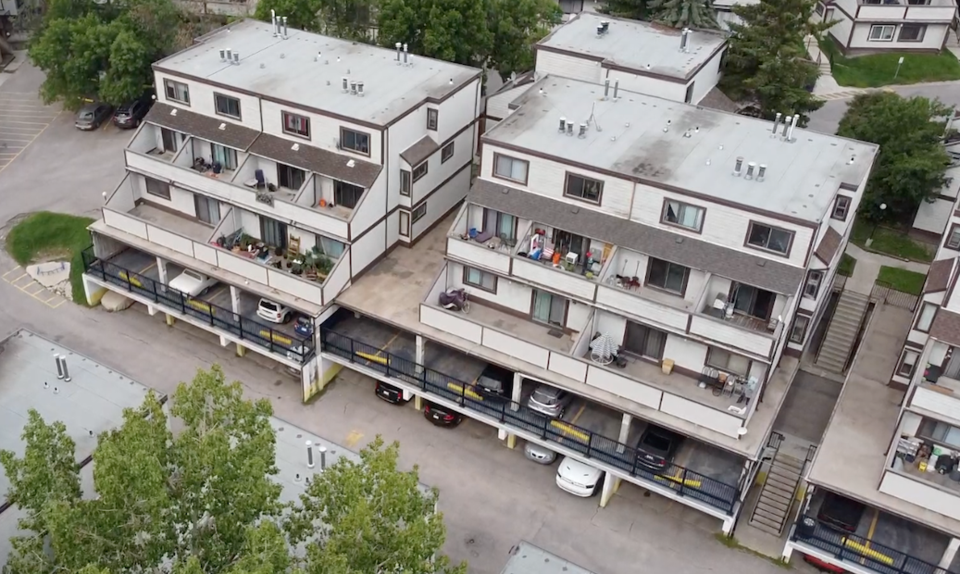One of Western Canada’s largest landlords, which already controls a third of the Surrey, B.C., multi-family rental market, is planning a multimillion-dollar acquisition expansion in British Columbia in 2021 – a move that is creating a stock market buzz.
“Tell your readers I am buying,” Bob Dhillon, founder and CEO of Calgary-based Mainstreet Equity Corp.(MEQ.TSX) told Western Investor.
Dhillon, who has taken Mainstreet from a 22-cents-a-share launch on the Toronto Stock Exchange in 2000 to a $65-per-share behemoth with $2.1 billion in assets and nearly 14,000 rental units, contends it is smaller, older apartment buildings that offer the best investor opportunity in B.C.’s multi-family market.
His target tenants, which he said are legion, are those able to pay $1,000 or less for rent, though he noted it may be closer to $1,400 even in the secondary B.C. markets he plans to buy into.
“We are all about affordable housing,” Dhillon said, “but Mainstreet is a cash-flow machine.”
So far this year, Mainstreet has spent approximately $89 million buying apartment buildings, mostly in Alberta. In July the company paid $30.5 million for a 188-unit Calgary rental complex, buying it for about $1 million below its assessed value from Canadian Apartment Properties Real Estate Investment Trust. It was the largest multi-family deal this year in Calgary, where most investors have fled the market.
Dhillon has a counterintuitive strategy that involves buying lower-income, underperforming rental buildings, renovating them and raising the rents. He buys and ships all of his renovation building materials from China, which he said saves him at least 30 per cent compared to buying local.
He brushes off the current angst about the pandemic-chilled economy, falling immigration or low oil prices.
“Real estate is a long-term play, you can’t make decisions based on a quarter-to-quarter basis,” Dhillon said. He expects a surge in B.C. immigration, employment and resource values post-pandemic.
“There are only 2.2 million purpose-built rental apartments in Canada and the federal government wants to raise immigration to 1.2 million people over the next three years,” he noted.
Mainstreet’s aggressive acquisition plan will exclusively target smaller B.C. cities and towns, Dhillon said. He is looking north of Victoria on Vancouver Island and Interior locations such as Penticton and Kamloops. He said he will steer away from single-industry resource towns such as Kitimat, which he called a “one-trick pony” because of its reliance on a liquefied natural gas terminal.
He will also skirt inner Metro Vancouver, which he believes is overpriced, but plans to be buying in Abbotsford and Chilliwack.
Currently, 27 per cent of Mainstreet’s properties are in the Lower Mainland, mostly in Abbotsford and Surrey, where it controls, respectively, 24 per cent and 34 per cent of the rental apartment market with a total of 2,800 units, according to analysis by Canaccord Genuity Capital Markets.
Unlike most big players, such as real estate investment trusts, Mainstreet won’t be buying new purpose-built rentals. Rents required for the fancy new towers are often not affordable for average Canadians, especially in Vancouver, Dhillon believes.
“The developer may need $2,600 per month for a one-bedroom, but local wages are not high enough to afford it,” he said.
In a “buy” rating issued October 27 for Mainstreet, Canaccord Genuity estimated the company has a potential acquisition war chest of $240 million, and it expects the stock to soar over the next 12 months.
“Our $91.00 target price is set in line with our NAV [net asset value} estimate and implies a one-year total return of 39.8 per cent. We are initiating coverage of Mainstreet with a buy rating,” the Canaccord Genuity report states.



